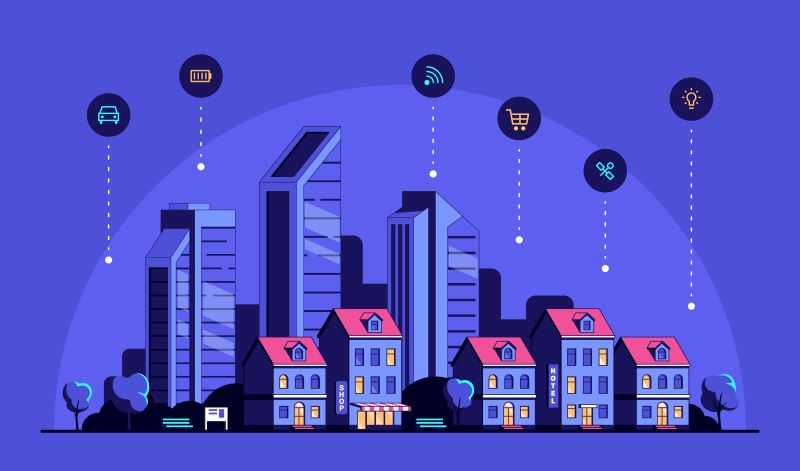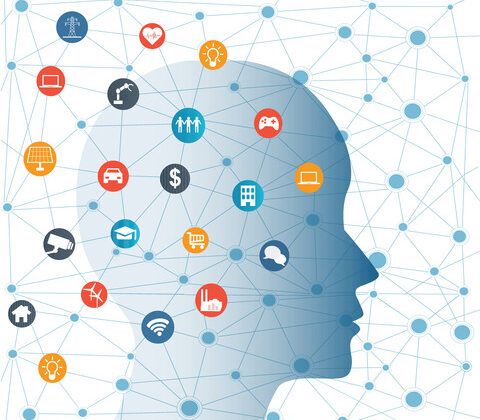What are responsible, smart cities?
What do megacities, fairness, rooftop aquaculture, demand-driven research, Norwegian tofu, directionality and data protection have in common?
They are all elements and themes that came up in a workshop on responsibility in research for smart and sustainable cities. This was the first workshop in the AFINO network, held on September 8th 2020 at the picturesque Fjordslottet in Osterøy outside Bergen. This blogpost sums up some of the perspectives and themes from that workshop.
The assignment
The participants were divided into groups of three and tasked with making a call or a research programme within the theme of «smart and sustainable cities». More specifically, they were to propose how societal responsibility should be expressed in such a call or programme. All groups were mixed with people from different institutions and with different experience from research in Responsible Research and Innovation (RRI) and Corporate Social Responsibility (CSR). In line with the new hybrid reality there was also a group present through Zoom.
Societal responsibility in research on smart and sustainable cities
According to the participants, responsibility in research on smart and sustainable cities comes at different levels, might be expressed through different mechanisms, should be based on specific ethical principles, and covers several dimensions of people’s lives.
The levels of responsibility refer to responsibility in the establishment of an imagined call for research projects or a research programme (i.e. at the policy level); responsibility in the selection of focus area; responsibility in the evaluation of proposals and research; responsibility in the conduct of research and innovation; and to responsibility for the impacts of research and innovation.
Responsibility at the policy level
Establishing a call or a programme and evaluating research ought to contain specific, procedural criteria where the involvement of organisations and institutions from the so-called quadruple helix are represented (i.e. industry, civil society, research and policy). Projects should be demand-driven, that is, they should correspond and respond to actual concerns and knowledge needs among industry, civil society, research and policy – and developed in dialogue with each other.
Responsibility for the impacts of research and innovation
A central element when articulating the desired impacts of a research policy, project or programme is to consider desirable and possible visions – and being able to change the direction in line with changing visions or novel knowledge of the distribution of risks and benefits of such impacts. Furthermore, it is both desirable and feasible to articulate some overarching principles or concerns. Examples of such concerns suggested by one group were inclusivity and participation; security and resilience; fairness; sharing and integrating; and innovation and competitiveness. A different group proposed inclusiveness; fairness; protection; and environmental and economic sustainability.
Selecting responsible focus areas in research
The focus area of responsible research should be to provide social, common and public goods under fairness and sustainability considerations. Attention should be paid to public health, education, digital and physical infrastructure, local communities, and network effects. Some participants suggested to address the larger world cities, megacities, as a priority and work from such complex realities and downward; others suggested attention to local communities or boroughs and expand outwards.
Again, one central feature is the development of learning arenas or knowledge-sharing platforms that can serve as a springboard for novel ideas for improved public services, job creation, sustainable food production and distribution, entrepreneurship.
Performing responsibility
Responsibility in the conduct of research and innovation means attention to the demand-driven nature of research and a willingness to seek new partnerships based on the problem at hand. More specifically, it means openness to learning, sharing and providing the infrastructures for learning and sharing. These infrastructures can be digital and data-based or physical and social. Such an openness needs to be orientated towards co-creation through specific attention to the direction of the project and adapting the project to new or unthought of circumstances.
Responsibility for the impacts
A central issue in responsibility for impact was how to transfer power and empower local communities through collaboration. Social experiments and social change need to be articulated bottom-up and with adequate space for action by the participants themselves. In the concrete context of smart and sustainable cities, actors within the quadruple helix (especially industry, government and academia) should place their data resources to use for addressing the above-mentioned themes. Power and empowerment are closely connected to inclusion of novel groups and groups at the margins. Such inclusion has two connected, but separate dimensions: One is inclusion as a democratic principle and a different dimension is inclusion for learning from each other in order to articulate new problems and see new solutions.
A different element of responsibility is the distribution of impacts in the surrounding regions and in other countries. As problems and solutions have causes and effects far outside of local communities and individual cities, an important challenge is for other cities to articulate how these problems and solutions appear on their side and for researchers to understand these chains of causes and effects and how they feed these back into local communities.
A call for transdisciplinary research
A turn towards a demand-driven research calls for transdisciplinary research. This form of collaborative research with new actors again calls for new working methods and discussions over the division of epistemic and moral labour. Humanists and ethicists sometimes experience that they are taken on board collaborative research projects in order to be the guardians of values and ethics while the others are doing science. Such divisions have deep social and cultural roots and are likely to change gradually rather than suddenly.
Furthermore, most research and innovation projects tend to take for granted what type of knowledge is most important and follows this lead throughout the project. However, transdisciplinary research should open up for that there are other possible sources of knowledge for the current challenge. When inquiring into different sources of knowledge, other solutions – or sets of solutions – might become more desirable. Consequently, opening up for other types of knowledge also means that one needs to discuss the directionality of research and innovation.
Conclusion
As we asked in the intro, what do megacities, fairness, rooftop aquaculture, demand-driven research, Norwegian tofu, directionality and data protection have in common?
Megacities are the locus of and at the intersections of the most complex social and ecological challenges in a world of increasing differences and temperatures. Production of services, goods and food needs to decrease their carbon footprint as well as minimizing access to and use of personal data – and at the same time create jobs in local communities such as making tofu or having distributed rooftop aquaculture in Oslo.
It is mainly through an attention towards the demands of communities that we can develop these solutions because they depend upon the local capacities for their realization. However, the processes of finding these solutions should not pretend to know the correct answer in advance, but search for different solutions and through mutual learning acknowledge when they have taken an unfruitful direction.

Erik Thorstensen
Erik Thorstensen leads the working group Building blocks for enhanced societal responsibility (WP4) in AFINO. Read more about Erik on AFINO's webpage.
Tags In
Related Posts
1 Comment
Comments are closed.





This sort of thing needs to happen! Simply letting the quota happen isnt acceptable. Now this will let you take the next steps to becoming successful.